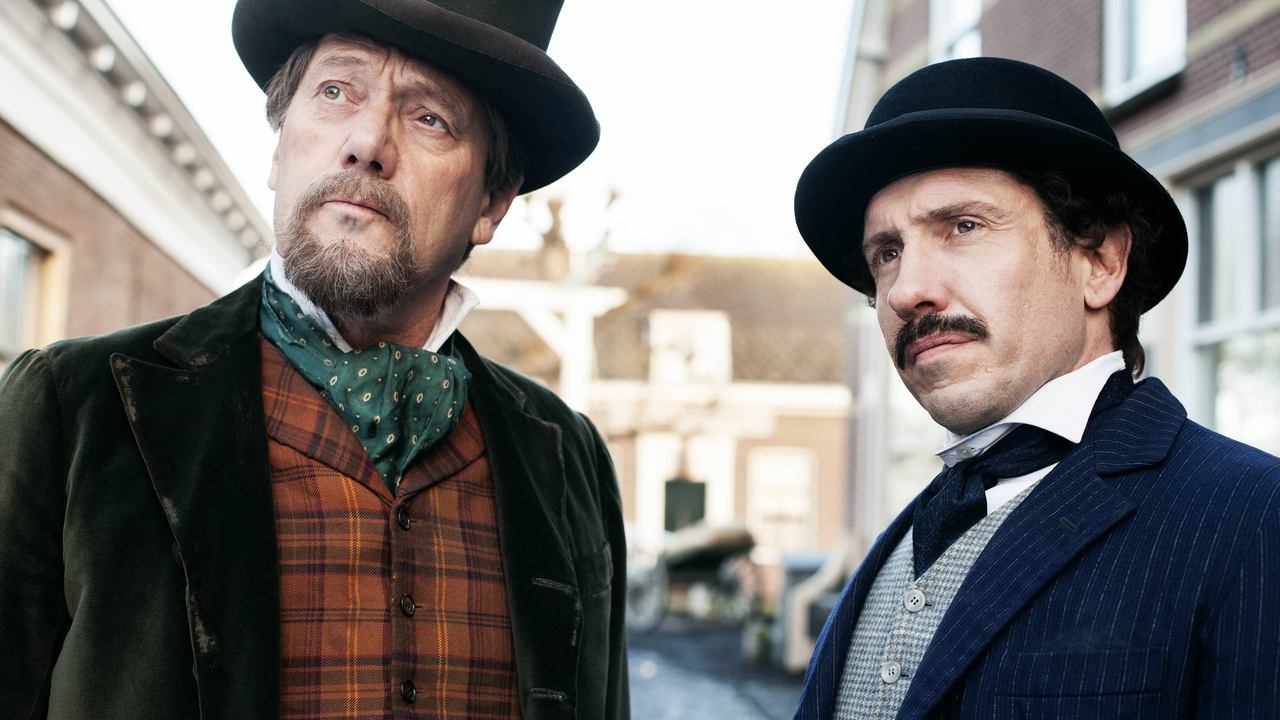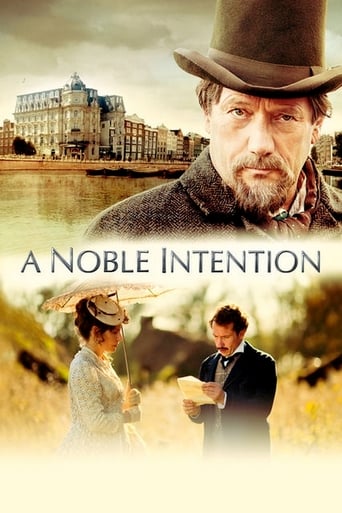


Very irritating: the diction of the actors, especially their accents, which is typical of people working for national radio and TV in the Netherlands. "Bekakt Goois". In Hoogeveen.
... View MoreThree story lines, maybe effective in the book but not in this movie. The most interesting part, only 30 minutes, is the struggle between the protagonist trying to sell his shop and the investor who doesn't want to pay what the shop owner is asking. The rest seems only padding to fill it up to feature length. To bad, because the eye candy is satisfying, i.e. the image of old Amsterdam.
... View MoreThe Dutch film industry always has trouble to keep pace with the technical level of the major film industries, so it usually takes some time before we see special effects in our movies of a quality that can compare to the stuff that Hollywood was producing years before. So considering this, it is probably a good thing that the movie adaptation of 'Publieke werken' took 16 years. Creating a period piece is no easy endeavor; on a small budget, it could easily look like an amateur history fair. Luckily, Roel Reiné had delivered sea battles in 'Michiel de Ruyter' that were on par with the ones from Master and Commander: The Far Side of the World, so it certainly showed that the time was right to make a period piece as the British usually make it.Publieke werken tells the backstory of one of Amsterdam's most curious sights: the Victoria hotel, which has two small houses embedded in its exterior. It takes some creative license, but it is a fascinating and fateful story of two cousins who are getting way out of their league in their quest for recognition. Mr Vedder (Gijs Scholten van Aschat) and his cousin Mr Anijs (Jacob Derwig) are essentially small-time men who feel that they deserve to be higher up the social ladder. Both men have noble intentions in wanting to help their fellow men, but they don't know the extent of their limitations (Vedder even somewhat less than Anijs). Involved in a stalemate with a rich developer, Vedder makes a terrible miscalculation that may cause the demise of dozens of workers that they have sent to the USA in the hope for a better life. Then again, Anijs makes an illegal medical decision that may seem dubious, yet it probably saves the life of a young worker woman who was practically ignored by the town's elitist doctor. It shows that good intentions and desire for recognition may not always be the best combination, but fate (or coincidence) can always decide otherwise.Praise to the director, screenwriter, cinematographer and editor for making this a morality tale that is pleasantly paced and constantly in motion, rather than a dull and dusty historical narrative that it could have been. Wide shots and lush camera movements, combined with great production design, beautiful costumes and superb visual effects create a convincing picture of a bustling and rapidly modernizing 19th-century Amsterdam, which is almost a character in its own right in the movie. The choice to use mostly modern Dutch (save for some expressions and words) is often controversial, but it helps the movie connect with a modern audience. Which is essential, because one theme of the book, the seeming futility of small men fighting against the arrogance of the establishment, may be hard for us to accept, as we live in an age where we are encouraged to express our talents, no matter where we come from. The novel's structure isn't necessarily easy to translate to film either. A movie usually lacks the amount of exposition that a novel can employ to create a coherent narrative, so the separate story lines and subplots in the film seem somewhat disconnected at first. But gradually, they come together in a great finale that is both tragic and redeeming, due to a violin as an unexpected "Chekov's gun" (look that one up). The efforts of the two main characters may have been misguided, they have not been in vain. And it provides a wonderful anecdote about that hotel. Fictional or not: never let the truth get in the way of a great story.
... View MoreDespite an expensive production, the narrative is unconvincing. "Value of location" is one of the main topics of the film. Nonetheless, the film does not give the viewer a sense of place. The choice and ordering of scenes undermine any tension to be build up. The different story lines do not support, but destroy each other. Important changes in the plot are not properly introduced or visually translated. As a result the gradual emotional breakdown of the violin maker, one of the main characters, is not convincing. The end scene of the doctor, the other main character, is so ridiculous and pathetic that it melts down the entire Hoogeveen storyline. Vital themes such as social injustice, or the arrival of modernity are treated as interchangeable backdrop. A relevant storyline is lacking. By result the causality of the narrative breaks down and all events become arbitrary. Pretty frustrating, as Rosenboom's success novel must have had all layers in place. A film can never be as rich as a novel, but a film must present those strings that contain the story. That is unfortunately not the case here.
... View More